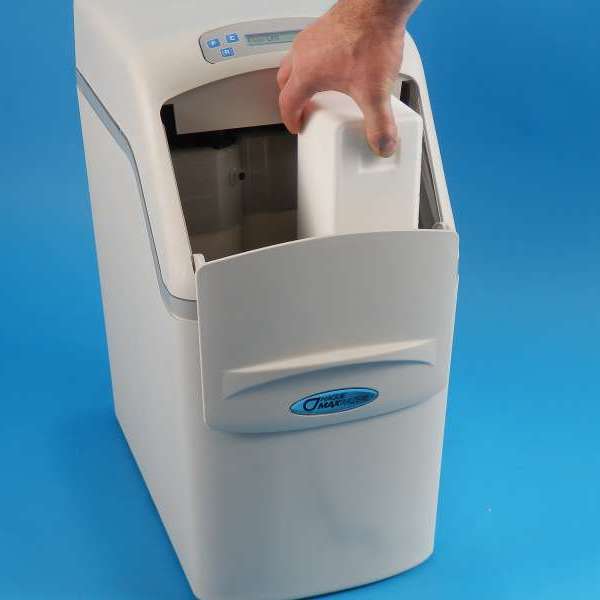
Once your water softener has been installed, you can start to enjoy all the benefits of having softened water. You should have softened water throughout your home within 2-3 weeks after installation. Please use the test kit provided to check that you are getting softened water after this time. If you are not already accustomed to softened water, here are some helpful tips on how to get the most from your new soft water system.
It is important that your water softener is kept topped up to within 2-3 inches of the salt lid and that the softener never runs below about a third full of salt to ensure that you enjoy the continuation of softened water throughout your home. Salt is available for home delivery, please call 01932 245 200.
A hard water drinking water tap is usually provided at the kitchen sink. It is advised that those on a low sodium diet or those that suffer any health problems consult with their doctor before drinking softened water. We have a wide range of water filtration systems that can improve your drinking water, if required, so please do not hesitate to contact us. we do not recommend the use of aluminium products for boiling water or cooking.
If the amounts of soap powder/liquids are not reduced, you will notice that you have excessive suds in your washing machine, for example, as it will struggle to rinse away the high quantity of soap. You can cut down on your washing powder/liquid by at least a third. The use of fabric conditioner may be reduced or indeed eliminated altogether when washing with softened water.
With soft water you will use less soap and shampoo. The whole bathroom will stay much cleaner and will eliminate lime scale. You will be able to use detergent free soaps such as Simple Soap, this can be particularly beneficial if you or a family member suffers with skin problems. PLEASE NOTE: be particularly careful with the young and the elderly. As surfaces become smoother with softened water, they appear somewhat slippery, so if you have become accustomed to abrasive hard water, consider the use of a bath/shower mat.
Turn off the electrical supply if applicable. Bypass the Water Softener by closing the inlet and outlet valves to the softener i.e. where the hoses connect to the pipe work and open the bypass valve which in normal usage remains shut. If you are having a plumbing leak, turn off your supply by shutting the softener inlet/outlet valves, bypass valves and or your stop cock. It is also advised to turn off any immersion heaters or boilers.
Most installations would supply your dishwasher with softened water. We recommend that crystal glass, silver and gold items are NOT put in the dishwasher as it may result in etching. If your dishwasher is now being supplied with soft water, you will need to reset the hardness setting to soft water (please refer to your handbook or contact the manufacturer) and you will then not need to put salt into your dishwasher. If your dishwasher remains on hard water then please continue as before.
We would recommend that these be fed with hard water or rain water. Please consult with gardening professionals for a specialist advice.
Please refer to manufacturers Instructions regarding the correct operation of steam irons and indeed the type of water they are to be operated with.
This tap is normally left on a hard water supply to facilitate car washing and the watering of plants. If this is not the case, it would be necessary to bypass the water softener with hard water. In winter we would advise that this tap be isolated via the internal valve to prevent frost damage and the outside tap opened to drain the water out.
When going on holiday we would recommend that you turn off the water supply at the main stopcock, but do not turn off the power supply should your water softener have one.
Please seek the advice of your supplier or a professional for the care of all aquatic life.
If you wish to take your water softener with you to your new home, simply turn off the inlet outlet valves and open the hard water bypass valve. The pipe work then needs to be disconnected. If there is an electrical supply, this needs to be unplugged. We are happy to disconnect your water softener so please do not hesitate to contact us.